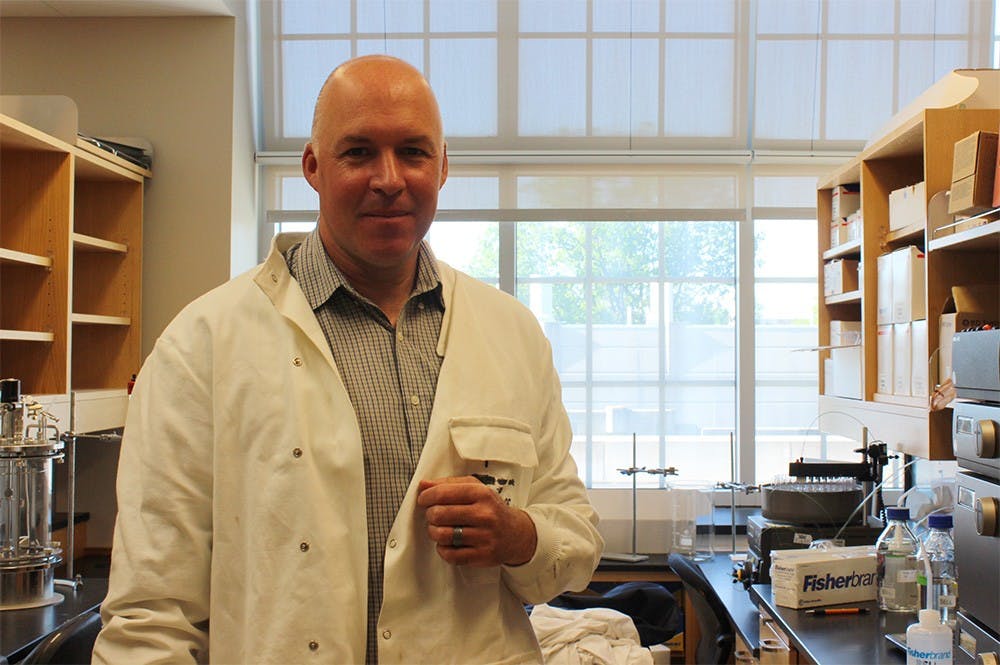Two IU scientists were selected as fellows to the American Academy of Microbiology for their research.
This academy is an honorific leadership group within the American Society for ?Microbiology.
Stephen Bell, professor in the Department of Biology and in the Department of Molecular and Cellular Biochemistry, and David Kehoe, professor in the Department of Biology, will bring the total of IU’s fellows in the AAM to 14.
One of those fellow members is Clay Fuqua, chair of the Department of Biology, who was elected to the academy last year.
“Both of these scientists’ stellar records in microbial research are recognized by their election as AAM fellows,” Fuqua said in the release. “They, along with the other fellows in our department, clearly demonstrate the impact of the department’s microbiology research and of the caliber of scientists who base their investigations at IU.”
Bell’s research focuses on Archaea, which are single-celled organisms without a nucleus. He specifically looks at cell division and DNA ?replication because Archaea are closely related to human cells and resemble an evolutionary predecessor of how our cells function today, Bell said.
“We want to understand fundamental cellular events,” Bell said. “These processes are integral to survival of all life on the planet, but also when these processes go wrong it can lead to conditions like cancer; so by understanding basic principles, we can understand what’s going on in cancer cells.”
Though the recognition and fellowship won’t change his day-to-day work in the lab, the recognition will keep the lab pushing things forward, Bell said. The election to the academy is a nice recognition of the combined efforts of people Bell works with at IU, as well as those he previously worked with at Oxford.
“I was very flattered and am very appreciative of this award,” Bell said. “It’s a badge of recognition.”
Bell also said he believes this shows the immense contributions IU makes beyond just the University.
“It’s a sign of the quality of research that’s going on at IU,” Bell said. “There are many excellent labs here and many fellows in the academy, and I hope we can continue to grow on this excellent research.”
Kehoe’s research focuses on photosynthetic organisms, called cyanobacteria. However, Kehoe got his start studying plant phytochromes, which are plant photoreceptors.
Studying plant phytochromes has helped crops grow in higher yields, ?Kehoe said.
Looking into phytochromes drove Kehoe to want to find a microbial phytochrome, which he did.
Since then Kehoe and his lab have worked to use light censors to control gene expression. Kehoe said he hopes his research is used to make bioenergy more efficient.
“It’s nice to see our work contributing to creating organisms that are more efficient,” Kehoe said. “The biggest problem in bioenergy and solar is that it’s just not efficient enough.”
He also noted that there is little known about cyanobacteria, though they have huge effects.
“I think that the most important thing about any kind of science is that it’s a trip of discovery and because that’s how progress is made,” Kehoe said. “A lot of the best discoveries on the planet and in history are people just checking out dark alleys and dusty corners and turning up things no one ever expected.”






